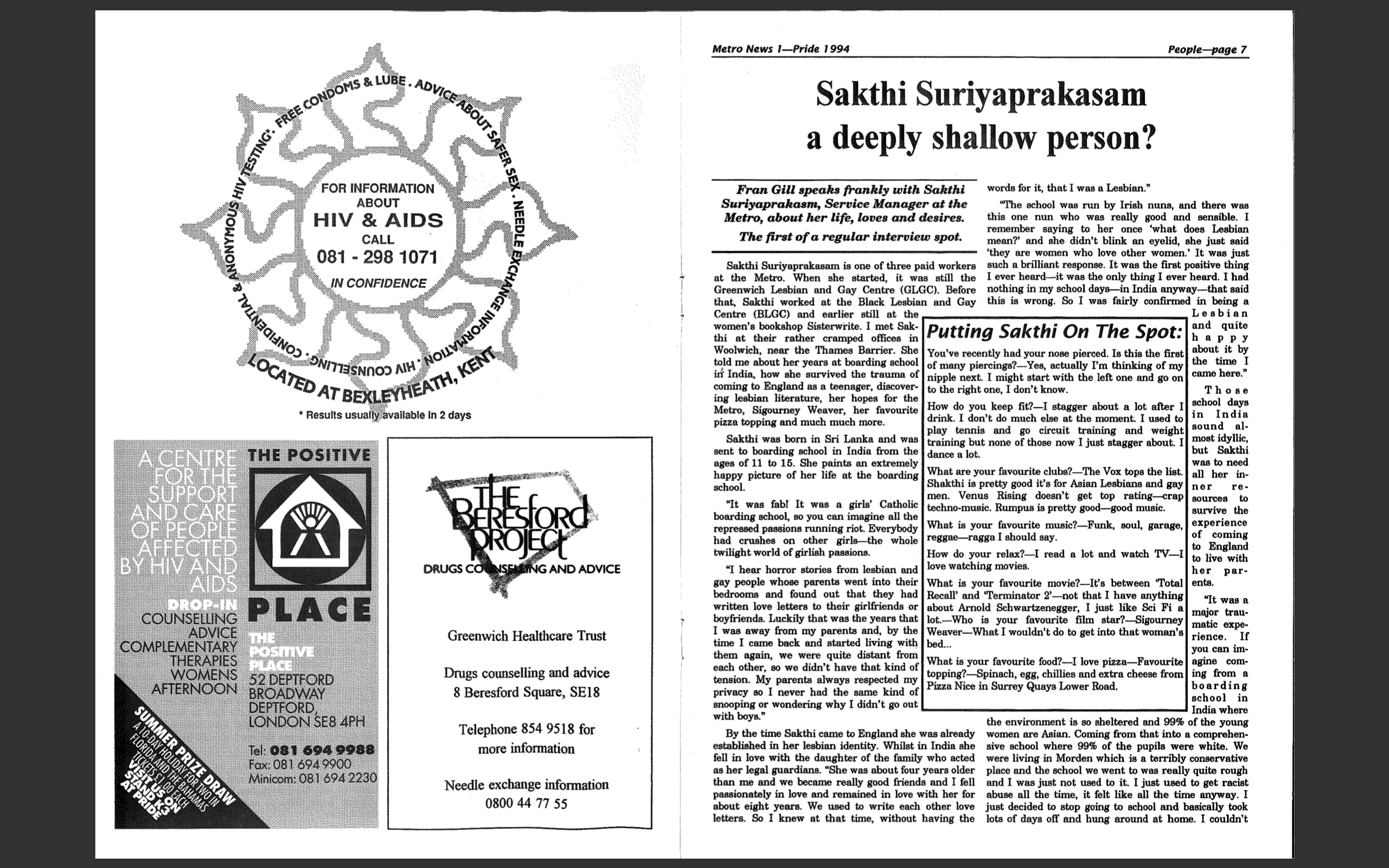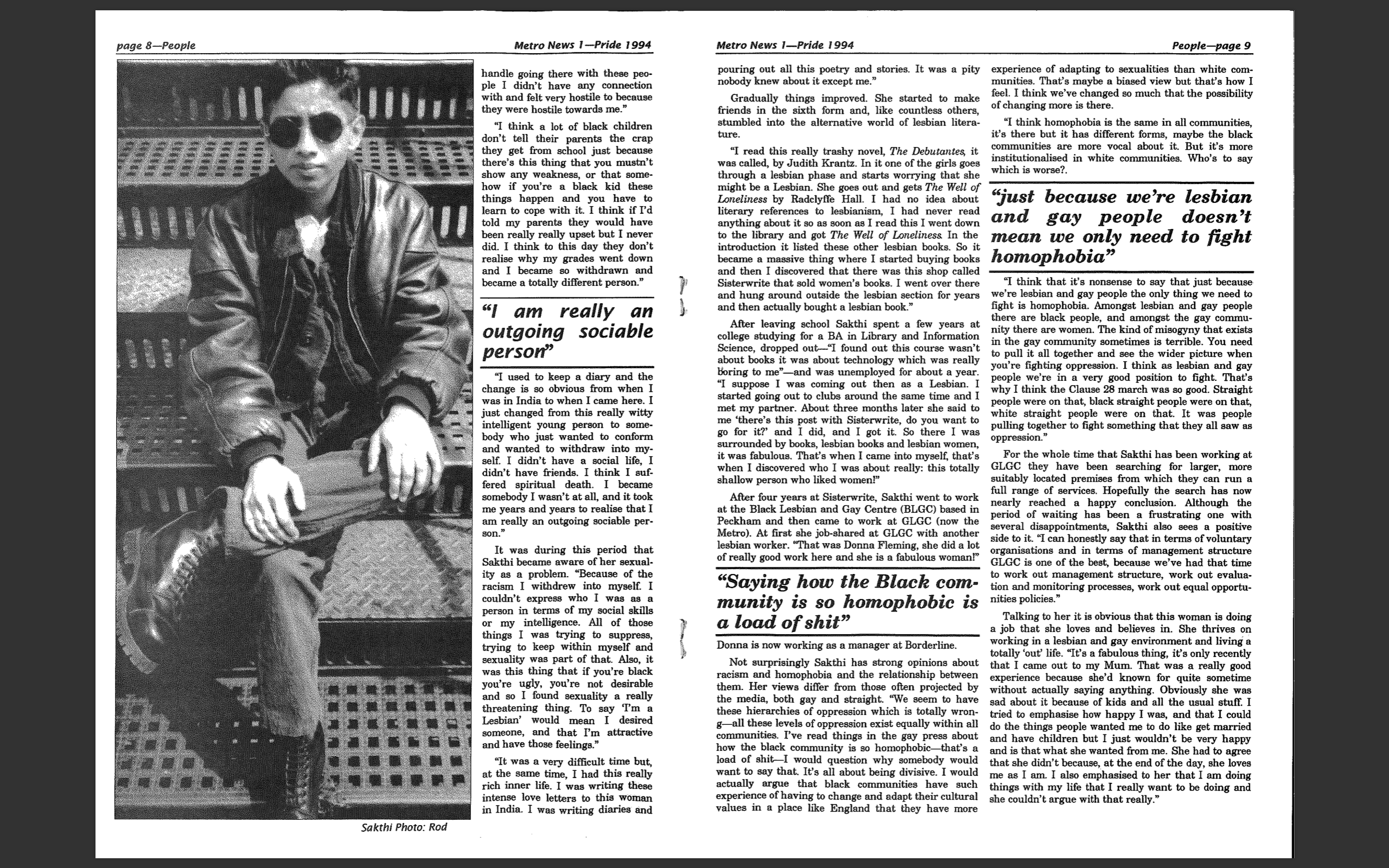In the past few weeks at METRO I’ve been privileged to interview three women about how their lives’ paths have intersected with the charity (Taz Edwards-White – Community Wellbeing Manager; Jackie Foley – Clinical Projects Manager; Sakthi Suriyaprakasam – METRO Director 1993 to 2003).
Hearing about their development from young women to adults as they swam upstream in strong heterosexual currents, I was struck by how rapidly one can become mentally vulnerable and also how, when support is available, we can move on. I am mindful that this is not the case for everyone who enters these psychologically vulnerable times.
These ‘everyday’ experiences of mental turmoil are not unique to the experiences of LBT women however the stories I was privileged to hear were strangely familiar to me as a lesbian in my mid-40s remembering life particularly in my late teens and early 20s. Sorting yourself and your life out generally at that stage is rarely straightforward but in the 1980s and 1990s when LBT life was less accepted or visible in the mainstream, managing one’s sexuality was in some ways a massive distraction – often very enjoyably so, granted – from dealing with other life issues such as a career. Traversing this disjointed territory and reaching some kind of plateau or place of psychological refuge, such as one that METRO provided for many of its staff and service users, leaves marks in the memory. Surviving it also provides inspiring stories of personal growth as well as triumph. These tough life experiences maybe explain the wealth of compassion and empathy these women have for others in mental discomfort or outright distress. Through METRO’s service provision for adults with mental health support needs and groups for young LGBT+ people coming to terms with their sexual orientation and/or gender identities, the real human challenge of dealing with these ‘everyday’ mental health experiences is validated. It is disturbing that such services are themselves fragile because of funding cuts.
The back story to these METRO mental health and community support services are resurfacing in the Our History project interviews. While preparing to record Sakthi Suriyaprakasam’s life story (Director of METRO 1993-2003), I found an interview in our archives that she gave for a 1994 METRO newsletter (below). Eloquently discussing her experiences of racism in school, teenage love, getting to grips with her sexual identity and finding a community in her early 20s, as well as her favourite pizza toppings and working in the Sisterwrite cooperative, I hope you enjoy some time travel into the not-too-distant past as much as I did.
If you are interested in volunteering opportunities on the Our History project in oral history or archiving (training for both from professionals will be available), check out our volunteering opportunities.

This project is supported by the National Lottery Heritage Fund.


